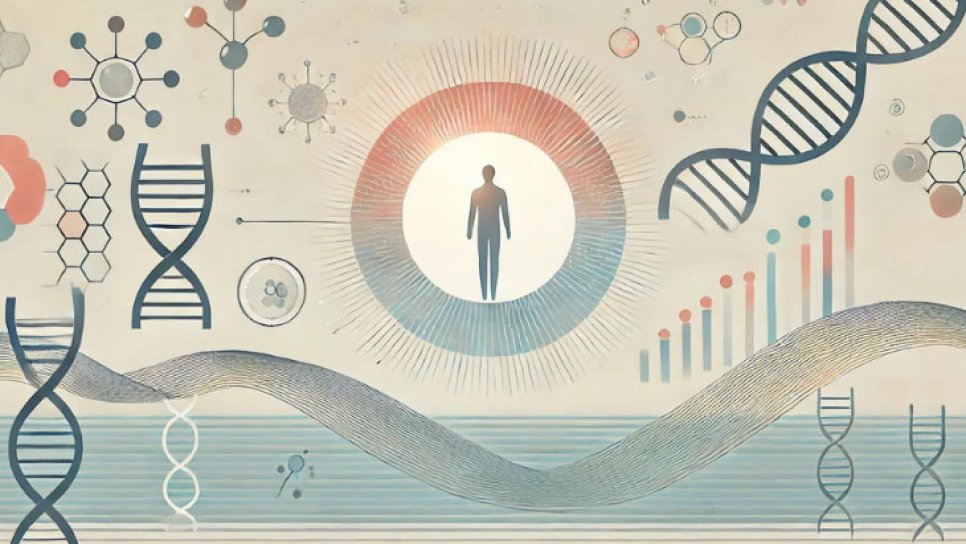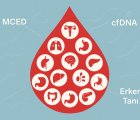
The Dawn of Personalized Cancer Treatment – A Revolutionary Model Unveiled
Since 2000, one of the most noteworthy innovations in medicine has been the concept of personalized treatment. But what exactly is personalized treatment? Is it science fiction or reality? Are new drugs being produced for each patient? What does treatment based on the tumor's genetics mean? This article delves into whether personalized treatment is possible and what it entails.
What is Personalized Cancer Treatment?
Personalized cancer treatment is an approach that aims to determine the most appropriate treatment method by considering each patient's genetic, biological, and personal characteristics. This approach utilizes next-generation genetic and genomic tests to understand the complex structure of cancer and identify the methods that respond best to treatment.
Is Cancer a Genetic Disease?
Cancer is a genetic disease at the cellular level. It arises from the accumulation of genetic damage that causes uncontrolled cell proliferation. However, the genetic nature of cancer does not mean it is hereditary. Hereditary cancer cases passed down from parents constitute only about 10% of all cancers. The remaining 90% result from genetic changes that occur later in life. Therefore, the use of genetic tests in cancer is extremely important.
What is a Genetic Test and How is it Performed?
Genetic tests are medical tests that detect specific genetic variations in an individual's DNA. These tests, performed on tumor tissue and more recently on blood or saliva samples, focus on identifying changes or mutations in the DNA. Today, there are thousands of different types of genetic tests. Among the most commonly used methods are Next-Generation Sequencing (NGS), Polymerase Chain Reaction (PCR), and immunohistochemical studies. These tests play a significant role in diagnosing and managing genetic diseases.
Two Main Types of Genetic Tests in Cancer
Genetic tests are used in cancer treatment for two primary purposes:
-
Detection of Oncogenic Genetic Changes in Tumors: These tests identify sporadic, non-inherited genetic changes to test the suitability for targeted cancer drugs. For example, changes in genes such as EGFR, ALK, HER2, NTRK, and BRAF are examined in this context. Initially, these tests are performed on tumor tissue; however, they are now also being performed on blood samples.
-
Detection of Hereditary Cancer Gene Changes: In individuals with a family history of cancer, these tests identify hereditary gene changes (e.g., BRCA 1-2 mutations) to calculate individual and familial risk. This helps in early diagnosis and assesses the suitability for drugs targeting hereditary cancer genes (PARP inhibitors).
Why Personalized Treatment Now?
Personalized cancer treatment has become a frequently discussed concept in the scientific world in recent years. This innovative approach has gained more prominence in medical literature over the past two decades, thanks to significant projects like the Human Genome Project and the Cancer Genome Atlas. However, it has only recently become feasible to implement this approach comprehensively. Why now?
Rapid advances in genetic and genomic technologies, groundbreaking developments in molecular biology, and innovations in bioinformatics are the main factors making personalized treatment possible. Advanced molecular tests like Next-Generation Sequencing (NGS) can now analyze the genetic profile of cancer in detail. As a result, providing the most suitable treatment options for each patient has become easier. Consequently, more precise and individualized approaches to cancer treatment are being adopted.
Tests and Approaches Used in Personalized Cancer Treatment
Personalized cancer treatment is an approach equipped with the most advanced technologies modern medicine offers. Here are some important tests and methods that make this process possible:

-
Genomic Tests for Targeted Therapies: Understanding the genetic structure of cancer is the most important step in personalizing treatment strategies. This process begins with identifying the mutations that trigger cancer. By detecting the genetic changes causing cancer, it is determined which smart drugs the disease may respond to. Tumor Mutation Burden (TMB) and Microsatellite Instability (MSI) tests measure the intensity of mutations and genomic changes in the tumor. These tests play a critical role in predicting the efficacy of immunotherapy, as the amount and type of genetic changes in the tumor greatly affect how the patient will respond to immunotherapy.
-
Hereditary Cancer Panel Tests: These tests, used to detect familial cancer types, play a significant role in determining hereditary risk factors. Thus, preventive measures and early diagnosis can be taken in individuals with a family history of cancer.
-
Recurrence Score Tests: These tests, which evaluate the risk of cancer recurrence after treatment, are genetic signature tests used to identify patients who truly need chemotherapy, especially after early-stage breast cancer. The most well-known of these tests is Oncotype Dx. These tests help manage the treatment process more effectively by predicting the likelihood of cancer recurrence. For patients showing a high risk of recurrence after treatment, additional measures can be taken, while those with low risk can avoid unnecessary chemotherapy.
-
Minimal Residual Disease (MRD) Tests: Minimal residual disease tests detect remaining cancer cells after treatment, revealing the presence of minimal residual disease. This allows for a more accurate assessment of the patient's response to treatment. Natera's Signatera and Guardant's Reveal tests are prominent in this group.
-
Multi-Cancer Early Detection (MCED) Tests: Early detection is vital in cancer treatment. MCED tests identify different types of cancer at an early stage, allowing patients to start treatment more quickly. These tests are typically performed using a simple blood sample and search for biological traces of cancer. The blood sample is analyzed in a laboratory to detect abnormalities in biomarkers like DNA or proteins. Although no MCED tests have yet received FDA approval, they continue to be tested in hundreds of thousands of individuals within clinical trials. These tests are expected to be among the most discussed topics in oncology in the future.
-
Anticancer Agent Sensitivity Tests: These tests evaluate the sensitivity of cancer cells to specific anticancer drugs, determining which drugs will be most effective. In these tests, tumor tissue obtained via biopsy is cultured in a laboratory while the cells are still alive, and their response to different cancer drugs is measured. This way, the most suitable drugs and combinations for patients can be determined.
-
Pharmacogenetic Tests: These tests, which predict the side effects and efficacy of drugs based on patients' genetic characteristics, provide information about the side effects of widely used chemotherapies like 5FU and irinotecan. Thus, they guide the selection of drugs to be used in the treatment process.
-
Microbiome Tests: These tests, which examine the effects of microorganisms in the body on cancer treatment, play an important role in the treatment process. The balance of the microbiome can affect patients' responses to treatment.
-
Polygenic Risk Scores (PRS): These polygenic risk scores, which calculate the combined effect of multiple genetic factors, are used to determine individuals' cancer risk. This helps in creating personal risk profiles for patients and taking preventive measures.
-
Radio-Genomic Tests: Radio-genomic tests, which determine genetic sensitivity to radiotherapy and pharmacotherapy, are used in treatment planning. These tests predict how patients will respond to radiotherapy and certain drugs, ensuring the most appropriate treatment strategies are determined.
Personalized Cancer Drugs and Living Drugs
Another important aspect of personalized cancer treatment is the development of special drugs based on the patient's genetic profile and the biological characteristics of the tumor. Some of the most notable advancements in this area include CAR T-cell therapy, TIL (Tumor-Infiltrating Lymphocyte) therapy, and mRNA cancer vaccines.
CAR T-Cell Therapy
CAR T-cell therapy is a type of immunotherapy where the patient's own T cells are genetically reprogrammed to recognize and destroy cancer cells. This therapy has shown effective results in many leukemias and lymphomas, receiving FDA approval and offering a personalized approach.
TIL (Tumor-Infiltrating Lymphocyte) Therapy
TIL therapy, another living drug used for some types of cancer like aggressive skin cancer melanoma, involves isolating T cells from tumor tissue, expanding them in a laboratory, and returning them to the patient. These cells help control the disease by attacking cancer cells. TIL therapy made history as the first living drug approved for melanoma treatment in February 2024.
mRNA Cancer Vaccines
The mRNA technology, closely associated with Turkish scientists Uğur Şahin and Özlem Türeci and widely known during the COVID-19 pandemic, holds great potential in cancer treatment. mRNA cancer vaccines work by producing tumor-specific proteins, activating the immune system against cancer cells. These vaccines aim to stop the progression of the disease by targeting cancer cells and hold a significant place among personalized treatment options.
These innovative treatments aim to expand the boundaries of personalized cancer treatment, improving patients' quality of life and making treatment processes more effective.
Towards Personalized Treatment in Cancer: A Vision for the Future
Personalized cancer treatment is not limited to genetic tests but also includes a holistic approach considering biological and personal factors. This approach aims to increase success rates in cancer treatment and enhance patients' quality of life with fewer side effects. The use of genetic tests that involve comprehensive and different technologies in cancer makes the treatment process personalized, offering the most suitable treatment methods to patients.
In the future, it is expected that with the further development and widespread use of these methods, personalized treatment in cancer will become a standard practice.






